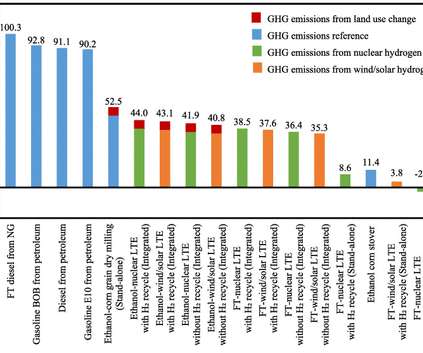Argonne study shows range of GHG reductions for electrofuel Fischer-Tropsch; up to 108% reduction
Green Car Congress
MARCH 8, 2021
In a paper in the ACS journal Environmental Science & Technology , they report that using nuclear or solar/wind electricity, the stand-alone FT fuel production (Naphtha, jet, diesel) from various plant designs can reduce WTW GHG emissions by 90–108%, relative to petroleum fuels. Zang et al. —Zang et al.










Let's personalize your content